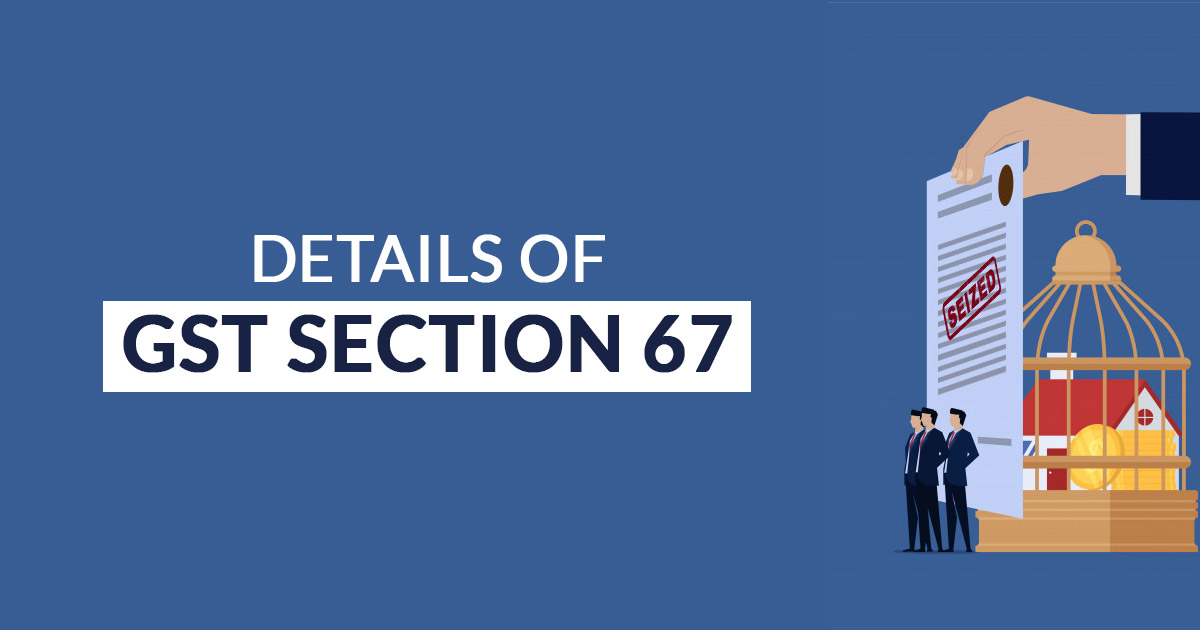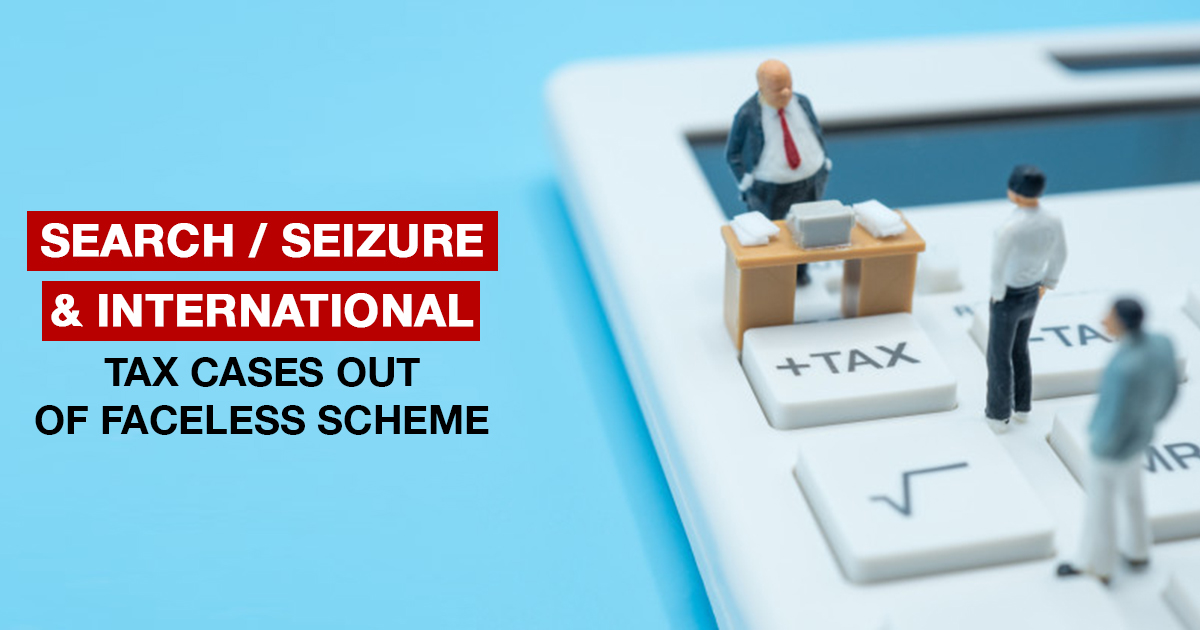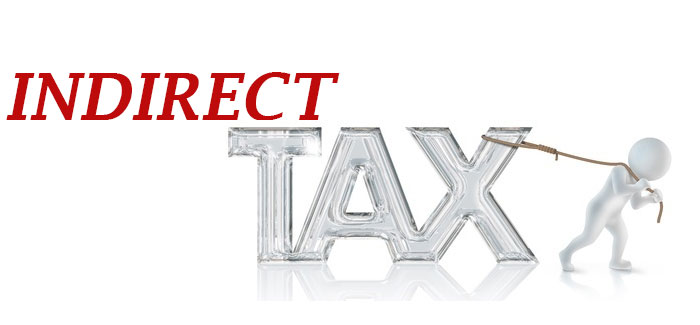
It’s hard to get a single answer to the question. In any Tax administration, the authority to Inspect, Search and Seize are necessary not only to protect the revenue exchequer of the government but also to protect the interest of the genuine taxpayers. The Tax authorities are expected to use these powers since the basic objective is to catch the tax evaders who take the under advantage at the cost of genuine taxpayers
Simultaneously, it is also expected from the department to use the aforesaid powers instead of misusing it. They should use the aforesaid powers with the utmost caution, use it only in case of exceptional circumstances and within the confinement of the four corners of law.
The Seizure of Cash is one of the many tools used by the higher tax authorities during the course of search and seizure operations. Here in this article, we shall try to examine the validity of cash seizure from the perspective of GST Act.
Relevant Provision of the CGST Act, 2017
Section 67 of the CGST Act confers the power of Inspection, search, and seizure to the GST department. Moreover:
- Section 67(2) makes a provision that in the case where the proper officer, not below the rank of Joint Commissioner has reasons to believe that any goods or things or documents or books are liable to confiscation which in the opinion of the Joint Commissioner shall be useful or helpful for or relevant to any of the proceedings under this Act, have been secreted in any place, then
- He may empower, by means of writing, any other officer of central tax to carry on the search and seize
- Might himself search and seize

- In other words
- There must be a proper officer (that is Rank of Joint Commissioner or above)
- Who has reason to believe
- There are any goods or documents or books or things,
- Which in his/her opinion will be useful for any proceedings under the aforesaid Act
- Have been secreted in any place including house premises or outside the house premises.
Steps to Analysis Provisions of Section 67(2) of the GST Act
Now the question that naturally pops up in our mind is whether the proper officer can seize cash consequent to powers granted in the provisions of section 67(2) of the GST Act. Whether the title ‘money’ can be treated as ‘document or books or things’ as conceived in section 67(2).
This above-mentioned issue was judged by the Honorable Madhya Pradesh High Court in the case of
- ‘Kanishka Matta v. Union of India and others’ – Writ Petition bearing Number 8204/2020. In the aforesaid case, Unaccounted cash of Rs 66,43,130 along with goods were seized from the residential premises of the petitioner. Consequently, the petitioner moved a petition before the Honourable Madhya Pradesh High Court with
- A prayer to set free the seizure of cash from the confinement of tax officers.
- The major point of contention was that the cash could not be treated as ‘Document or Book or Things’ and consequently, the tax department should be directed to give back the cash.
- However, the Honorable High court examined that the word “things” that appears in Section 67(2) of the CGST Act, 2017 connotes a wide meaning, and considering the detailed analysis mentioned in the order,
- It was held that the term ‘thing’ includes the money and it could not be excluded in the prayer made by the petitioner from Section 67(2). So the Honorable HC ruled that the tax authorities possess the power to seize cash using the powers given under section 67(2).
However, on reading and analyzing the provisions of section 67, it is crystal clear that just mentioning the word “thing” is not the only qualifying criteria to make something eligible for seizure. The concerned and the proper officer should also form an opinion on whether the said “goods or documents or books or things” shall be useful for any proceedings under the aforesaid Act. Let us further examine this point.
As already said, in order to seize the cash or for that matter any goods or documents or things, the authorised officer must possess a reason to believe that such seizure shall be useful or relevant for further proceedings. The Value of cash doesn’t change based on its serial number or denomination or other such characteristics should not matter in further proceedings. The Cash can be inventoried and irrespective of the aforesaid fact, its value remains the same. Consequently, it is very difficult to understand that seizure of cash can be useful for any proceedings.
Even just for the purpose of analysis, if we assume that the aforesaid seizure of cash is necessary to safeguard the interest of the revenue, section 83 empowers the tax department to attach any property for the purpose of protecting the interest of the revenue department. As per section 83, if the Commissioner has the opinion that for the objective of protecting the interest of the revenue department, it is necessary to do so, he might, by order in writing, attach provisionally any of the property that includes the bank account also.
Though Search can be initiated by the Joint Commissioner but section 83 of the CGST Act requires the Commissioner to form an opinion regarding attachment of property for the protection of interest of revenue department.
So the contention that the seizure of the cash can be made to protect the interest of the revenue is not sound as it shall amount to the replacement of the independent opinion to be formed by the opinion of the Joint Commissioner. Furthermore, the Joint commissioner must have made his opinion as provided in the provisions of section 67 and not in the provision of section 83. Both these opinions are for a separate purpose and are to be formed by specified officers separately.
It is important to mention that Section 132 B (1) of the Income-tax Act provides for the adjustment of the assets seized, against any existing liability. However, GST act does not have a similar provision. Consequently, the seizure of the cash that is found in business premises by the GST authorities may be unwarranted, not similar to the Income-tax Act 1961 
Conclusion
In the above discussion , the question as to whether cash can be useful or relevant for further proceedings was not raised before the Honorable Madhya Pradesh High Court.
It is worthwhile mentioning here that the provisions relating to seizure are differently worded in the GST act when compared to earlier Indirect tax laws 
Whether the seizure of cash by GST authorities can be useful or relevant in further proceedings needs to be judicially tested in the forthcoming time. Also, Whether accounted cash can be said to be secreted is also another dimension that needs to be analyzed.
To sum up, this matter needs to be examined on a case to case basis and it cannot be inferred that GST authorities possess the unconditional powers to seize cash during search operations. So it is expected that the department shall not seize cash unnecessarily just to build pressure on tax payer.









